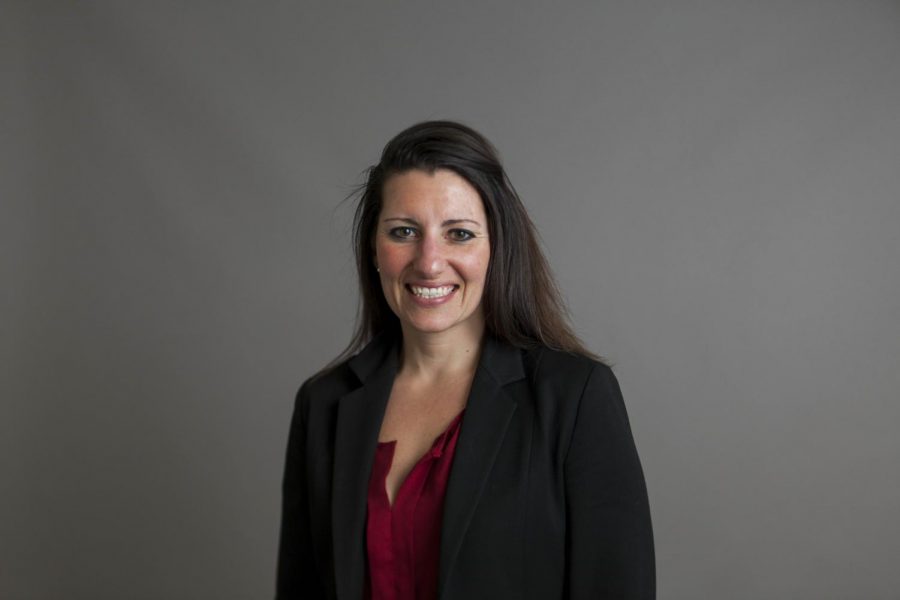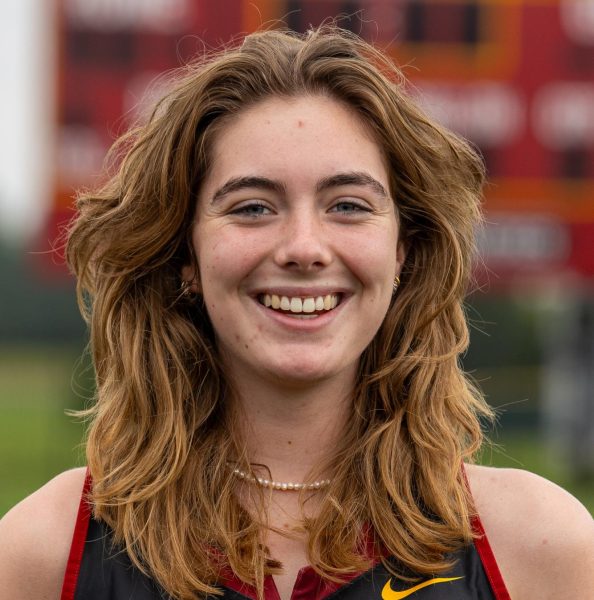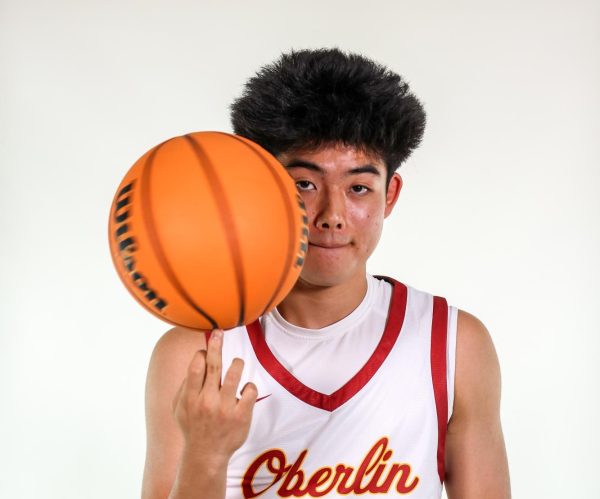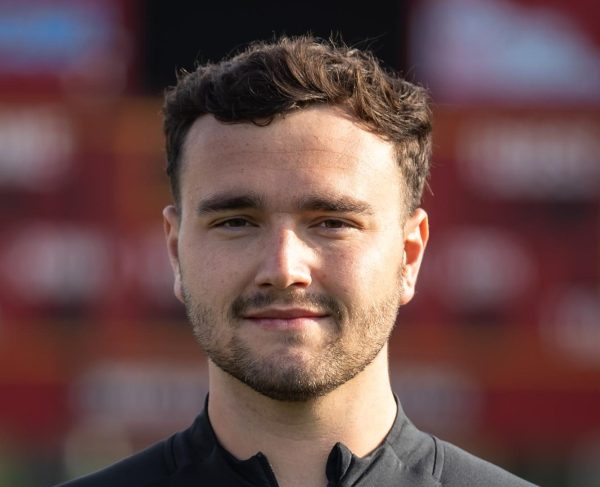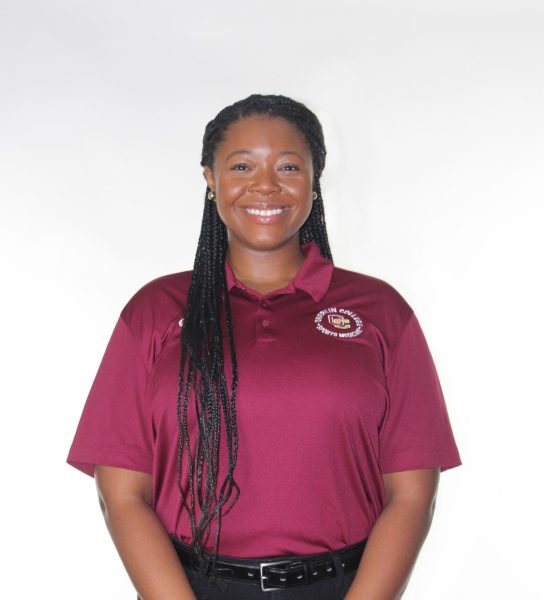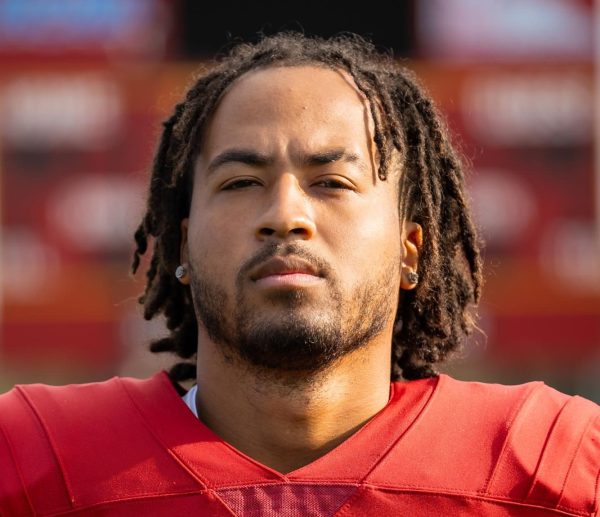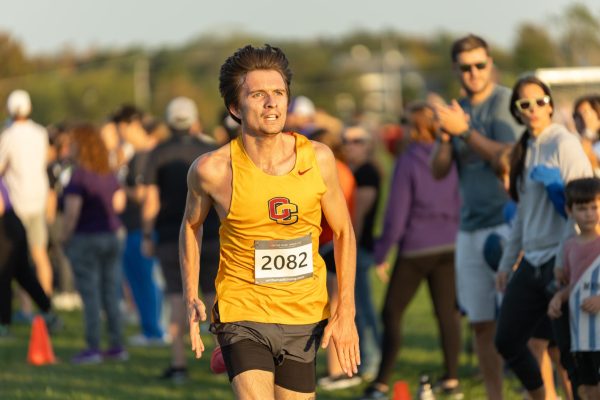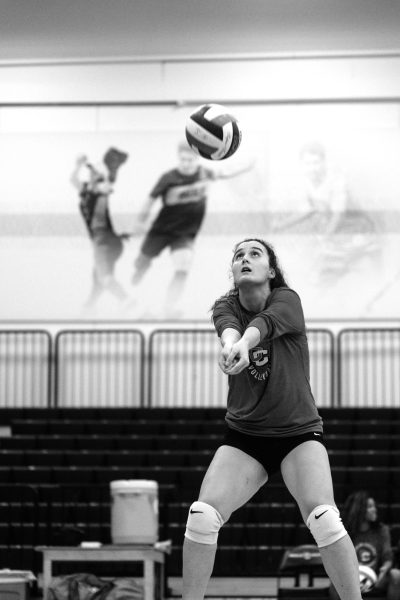In The Locker Room with Lisa Thuer, Yoga Instructor
Lisa Thuer
Lisa Thuer joined the Oberlin community less than two months ago to fill the position of Associate Director of Leadership Annual Giving. She works on the Oberlin Annual Fund, which helps ensure that students receive scholarship funds. Before arriving at Oberlin, Thuer worked in Kansas City, MO, for Women Leaders in College Sports, an organization whose membership includes Delta Lodge Director of Athletics & Physical Education Natalie Winkelfoos, Head Softball Coach Sara Schoenhoft, Head Volleyball Coach and Deputy Title IX Coordinator for Athletics Erica Rau, and Senior Associate Director of Athletics Creg Jantz. Just last week, Thuer kicked off the athletic department’s new yoga program, which provides free drop-in yoga classes for all student-athletes.
This interview has been edited for length and clarity.
How and why did you get into yoga?
I have a Master’s in social work and a Master’s in education, and for the first part of my professional life, I was a social worker and worked predominantly with women who were experiencing intimate partner violence and excessive poverty. Going to the courtrooms every day and listening to their stories and engaging with the person who was causing them so much pain — that really gets to you. I needed to start healing from that vicarious trauma that I was experiencing, so I started running. I was just tearing up my body, and there really wasn’t a space in that to get silent and listen. I started practicing yoga, and that is where I have found so much healing.
How did you end up at Oberlin?
I was so intrigued by how social justice ties into [students’] education here and how students really seem to be aware of what’s going on around the country. I became aware of Oberlin because Natalie Winkelfoos was on the [Women Leaders in College Sports] board, and you can really tell she values her job here and students’ wellness. In college athletics, she is definitely a force, and I knew I wanted to be on a team with her. Then I watched one YouTube video of President [Carmen] Ambar, and I was like, “Done.” She is a leader. She also is a force and is going to ignore positive change on this campus.
What is this new yoga program, and how will it benefit student-athletes?
The NCAA has come out with a bunch of mental health initiatives, and what we know is that student-athletes experience the same amount of stressors as other students on campus. The one difference, though, is that there is an additional environmental stressor [for athletes]. You have to go to class and practice. There’s these time restrictions on yourself, and then there is also performance and [the question], “What kind of coach do you have?” Student-athletes have this whole additional set of environmental stressors that we’re not seeing, and the really cool thing is that Natalie Winkelfoos recognizes that in a way to kind of dissipate some of that is to get really silent with yourself. Yoga can work to do that. Of course we talk about strength and balance and flexibility, but more than anything, going into that Savasana — or Corpse Pose — is where all the magic happens. You’re listening to your breath, and your breath is your medicine and your life force. You really go inside yourself and find a softening.
What are the different classes that you are offering and how do they differ from one another?
I don’t know if you remember being five and flipping around and doing cartwheels and things. As we move along, we’re losing this flexibility because we do this repetitive motion of throwing a softball or swinging a tennis racket and have a stagnant lifestyle that we’re living. [Students] are sitting at a desk all the time studying, or we’re sitting in our cars or sitting around at work. Those two pieces really take away from our flexibility, which is really important, especially for a student-athlete. Through Vinyasa yoga and Hatha yoga, I am able to offer this balance to who needs [it]. I would describe Vinyasa as a seamless movement — like a wave or water. There are more dynamic poses in there to heat up the body. I would describe Hatha as a space-defined balance that really helps you find healing. That’s where I use more of the passive movements and restored movements that are preparing the body to rest, relax, and restore.
Why do you believe it is important to be physically, mentally, and spiritually well, especially as a student-athlete?
The perception of yoga for athletes is that it’s going to improve strength and flexibility and balance, and those are all real things, but there’s more. When we see Olympians and [professional] athletes, so many of them are practicing yoga and really it’s more of the breath work. I was just talking about the Ujjayi breath the other day. Before high divers prepare for their dive, that is the breathing that they’re practicing as they totally zone in and focus. I am confident that through the power of yoga, you will raise your game.
What advice do you have for students looking for other ways to achieve a healthy mindset or lifestyle?
I think it’s really important to pay attention to what you’re putting in your body. Waking every morning and making a cup of lemon water to cleanse the body, refresh, and renew [is a good practice]. Another practice I have is a gratitude journal, so in the morning I wake up and grab my journal and write down three things that I’m grateful for. I think a practice of gratitude is huge, and I fully believe that everybody should take five minutes to meditate every day — just walking outside and taking the headphones out and really coming into the present. That’s the only place to be — staying in the present, whether it’s the conversation you’re having or taking out the headphones and hearing the birds.
What is the power of positive thinking and self-care?
I think the power of positive thinking is absolutely transformational. I think living in a space of fear and sadness or jealousy and hate is easy for us to do, but when you’re doing that, you are choosing the cheapest room in the house. I want people to have better living conditions, because they are so deserving of that. I also believe that the vibes you put out in the world, you get back. What you give, you get back.
When are these classes offered?
This could totally change, but I think SAAC decided that right now 12:15–1 p.m. on Wednesdays and 5:30–6:30 p.m. on Tuesday evenings is best, depending on whether you’re in season or out of season. All you have to do is come by or send me an email [at [email protected]]. I held a private practice for softball and the women’s track and field asked me to hold a class for them, so I’m happy to do that.


